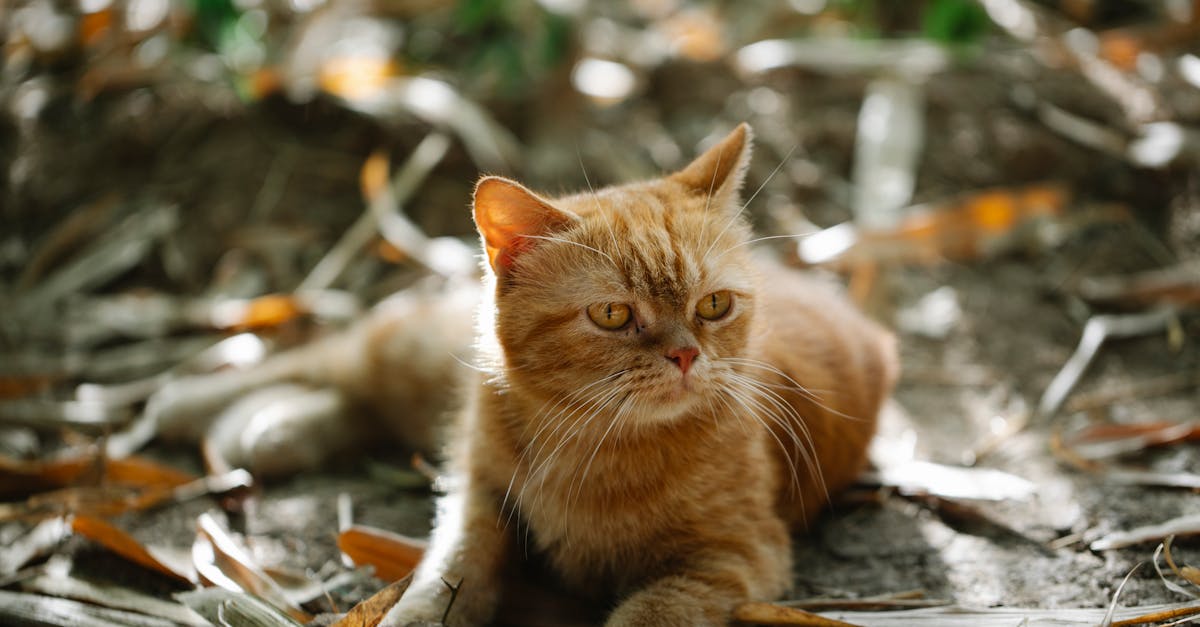Cats love basking in sunny spots, but have you ever wondered if your feline friend can get sunburned? While cats enjoy the warmth of the sun, prolonged exposure can pose risks to their delicate skin. Understanding how sunburn affects cats and how to protect them is essential for keeping your pet safe and healthy.
☀️ Can Cats Really Get Sunburn?
Yes, cats can get sunburned just like humans. Their fur provides some protection, but areas with less fur or no fur at all—like the nose, ears, and belly—are particularly vulnerable. Cats with light-colored or thin coats are at an even higher risk because they lack the pigment and fur density needed to shield their skin from harmful ultraviolet (UV) rays.
Sunburn in cats, also called solar dermatitis, isn’t just a cosmetic issue. Repeated sunburn can lead to serious complications, including skin damage and even skin cancer over time. Being aware of the risks is the first step in protecting your cat from sun-related harm.
🐾 Symptoms of Sunburn in Cats
Sunburn in cats might not always be immediately noticeable, but there are clear signs to watch for. If your cat spends time in the sun, keep an eye out for these symptoms:
- Red, inflamed, or peeling skin
- Dry, scaly patches on the nose, ears, or belly
- Excessive licking or scratching of affected areas
- Hair loss in sun-exposed spots
- Scabs or sores that don’t heal
In severe cases, sunburn can cause blistering or open wounds, which may become infected. If you notice any of these symptoms, it’s important to consult a vet promptly to prevent complications.
🌞 Why Are Cats at Risk of Sunburn?
Certain factors can increase a cat’s susceptibility to sunburn. These include:
- Light-colored or white fur, which offers less protection against UV rays
- Thin or sparse fur, exposing more skin to the sun
- Hairless breeds like Sphynx cats, which have no fur barrier
- Prolonged exposure to direct sunlight, especially during peak hours
Outdoor cats or cats who love lounging by sunny windows are particularly vulnerable. Even indoor cats can get sunburned if they spend extended periods in direct sunlight streaming through windows.
🛡️ How to Protect Your Cat from Sunburn
Preventing sunburn in cats is much easier than treating it. Here are some practical steps you can take to keep your feline safe:
- Limit sun exposure during peak UV hours (10 a.m. to 4 p.m.)
- Provide shaded outdoor spaces or keep your cat indoors during hot, sunny days
- Use UV-blocking window film or curtains to reduce indoor sun exposure
- Apply pet-safe sunscreen to vulnerable areas like the nose and ears (consult your vet first)
- Consider UV-protective clothing for hairless or light-colored cats
It’s important to note that human sunscreen is not safe for cats, as it can contain toxic ingredients like zinc oxide or salicylates. Always choose a sunscreen specifically formulated for pets, and follow your vet’s recommendations.
📋 What to Do If Your Cat Gets Sunburned
If you suspect your cat has a sunburn, take these steps to provide relief and prevent further damage:
- Move your cat out of direct sunlight immediately
- Cool the affected area with a damp cloth or a cool (not cold) compress
- Keep your cat from licking or scratching the sunburned skin
- Contact your vet for advice on soothing treatments or medications
Never apply human creams or ointments to your cat’s skin without veterinary guidance, as some products can worsen irritation or be toxic if ingested.
🐱 Are Certain Cats More Prone to Sunburn?
Some cats are more susceptible to sunburn than others. Breeds like the Sphynx, Devon Rex, and Cornish Rex, which have little or no fur, are at high risk. Additionally, white or light-colored cats, such as white Persians or Turkish Angoras, are more vulnerable due to their lack of protective pigmentation.
Even if your cat doesn’t fall into one of these categories, it’s still important to monitor their sun exposure. Cats of all breeds and colors can experience sunburn if they spend too much time in direct sunlight.
⚠️ Long-Term Risks of Sunburn in Cats
While a single sunburn may heal without lasting effects, repeated sun damage can have serious consequences. Chronic exposure to UV rays increases the risk of skin conditions like actinic keratosis and squamous cell carcinoma, a type of skin cancer. Early detection and prevention are key to avoiding these complications.
Regularly checking your cat’s skin for changes, such as new scabs, sores, or areas of discoloration, can help you catch potential issues early. If you notice anything unusual, consult your vet promptly for an evaluation.
FAQs
Can indoor cats get sunburned?
Yes, indoor cats can get sunburned if they spend extended time in direct sunlight near windows. UV rays can penetrate glass, so it’s important to limit sun exposure and use UV-blocking window film or curtains.
Is sunscreen safe for cats?
Only pet-safe sunscreen is safe for cats. Human sunscreen can contain toxic ingredients, so consult your vet for recommendations before applying any product to your cat’s skin.
What should I do if my cat has a severe sunburn?
If your cat has blistering, open wounds, or signs of infection, contact your vet immediately. Severe sunburn may require medical treatment to prevent complications.
Are hairless cats more prone to sunburn?
Yes, hairless cats like the Sphynx are highly susceptible to sunburn because they lack the protective barrier of fur. Extra precautions, such as pet-safe sunscreen and UV-protective clothing, are essential for these breeds.
References
- PetMD – How to Protect Your Cat from the Sun
- ASPCA – Summer Safety Tips for Cats
- VCA Hospitals – Sunburn in Cats
Book a $49 online vet consultation at https://www.dialavet.com for fast, expert advice.






















